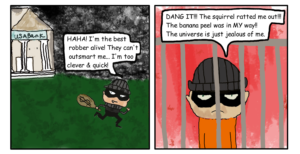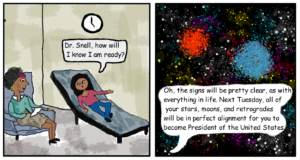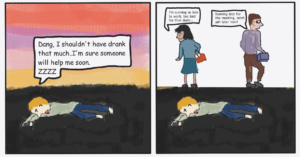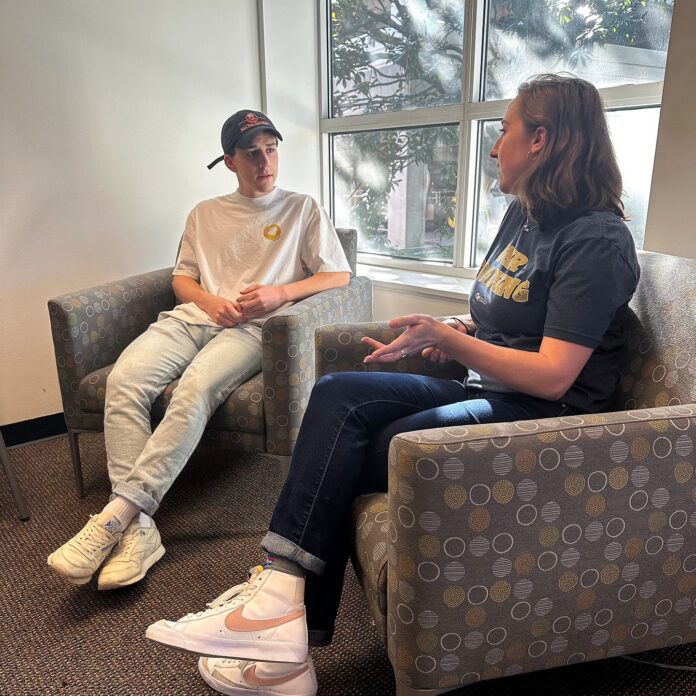Psychology Comics Interlude
Psychology is one of the most relevant and interesting science fields that pertain to humans. Psychology is the science of mind and behavior, and it includes the study of conscious and unconscious phenomena, as well as our individual feelings and thoughts. Enjoy these entertaining comics that consist of a definition of the specific psychology concept being portrayed!
Self-serving Attributional Bias– The tendency to attribute failure and other unfortunate events to external circumstances (i.e.: bad weather) and to attribute success and fortunate events to oneself (i.e: “I’m so smart!”).
When it comes to self-serving attributional bias, the locus of control (LOC) comes into play. The concept of locus of control refers to a person’s belief system about the causes of events, and their attributions. The two categories of LOC are: internal and external.
If a person has an internal LOC, they’ll assign their success to their own hard work, talent, effort, or persistence. However, if they have an external LOC, they’ll credit any success to luck, their zodiac sign, or something external of themselves. Those who are more likely to display self-serving bias, especially when it comes to achievements, are people with an internal LOC.
Illusory Correlation– The belief that two variables are correlated when in fact they are not
When it comes to illusory correlation, this is our tendency to use information that comes to mind quickly and easily when making decisions about the future. The availability heuristic is the pairings of two variables that come to mind easily and are seen as correlated. For example, gluten intolerance and ice cream are mentioned together often, so this might cause us to think they are correlated when they aren’t. The comic above makes light of how horoscopes can sometimes be attributed to the reasons or events that occur to people.
Good Samaritan Effect– Time (especially under pressure) is one external factor that prevents people from helping another person.
The Good Samaritan Effect in psychology shows us that time is an example of one external factor that prevents people from stepping in and helping another person. If you are under pressure to be somewhere or do something, you are less likely to help someone.
Source(s)
Gilovich, T., Keltner, D., Chen, S., & Nisbett, R. E. (2015). Social Psychology (5th ed.). WW Norton & Co.
Herndon, J. (2018, May 31). Self-serving bias: Examples, definition, and experiments. Healthline. Retrieved October 1, 2021, from https://www.healthline.com/health/self-serving-bias.





